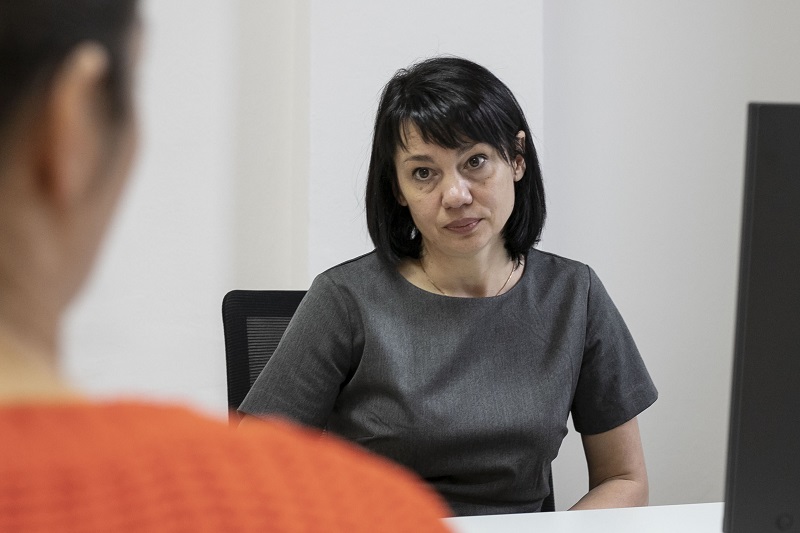Safe but uncertain: two years after displacement from Ukraine
Following the escalation of the Russia-Ukraine international armed conflict two years ago, European countries encountered exceptional demand for protection. More than six million people from Ukraine are currently recorded in Europe, according to UNHCR. The activation of the EU Temporary Protection Directive on 4 March 2022, provided millions of people immediate access to protection, rights and essential services, such as accommodation, healthcare and education, without having to submit individual asylum applications. Other European countries followed the EU’s example and set up similar temporary protection schemes of their own.
However, in many EU countries, people have encountered a range of practical and administrative difficulties to access these rights. Also, the temporary nature of this protection status, initially limited to one year followed by time-bound extensions, keeps people in a situation of uncertainty.
Uncertainty is one of the biggest post-migration stressors impacting displaced people’s mental health and their prospects of inclusion in the new community, including finding a stable job. The temporality of status, coupled with the pre-existing scarcity and unaffordability of housing, has also affected people’s ability to access the rental market. Currently, the temporary protection status of people displaced from Ukraine is secured until 4 March 2025. However, the EU and Member States are yet to come up with a solution for what will happen next, to avoid leaving millions of people in limbo.

After these two years, some people are still struggling and see their needs increasing at a time when humanitarian and government support programmes are being reduced or ending altogether.
Challenges to access long-term accommodation
Many people have encountered and continue to experience numerous challenges to move from transitory accommodation, such as hosting and reception facilities, to more stable, autonomous and secure housing. Some countries have set up accommodation centres, while others provide rental subsidies to people living in private housing. Several countries such as Ireland, Poland and Slovakia also offer financial incentives to individuals hosting temporary protection beneficiaries. In addition, National Red Cross Societies and the International Federation of Red Cross and Red Crescent Societies (IFRC) have been assisting individuals and families to access emergency, collective or private accommodation.
However, these are – to a large extent – temporary solutions, and in some cases, are coming to an end. Furthermore, large families, people of non-Ukrainian origin, as well as Roma communities and people with disabilities, face additional difficulties in accessing more durable accommodation. Lack of access to longer-term accommodation can have a serious impact on peoples’ ability to live life autonomously and exercise rights such as education and employment. Housing policies, along with integration and inclusion strategies at EU and national levels, are crucial in supporting a smoother transition.
/Olivier_Minaire_Photography_CROIX_ROUGE_Echternach_31_SM.jpg)
The toll on mental health and psychosocial wellbeing is mounting
Even though temporary protection has been extended until March 2025, what will happen once this protection ends remains uncertain. A survey commissioned by the IFRC has found that in countries neighbouring Ukraine, almost half of people surveyed say they are anxious about the uncertain future they and their family face.
People meet barriers when accessing mental health services, such as long waiting times, language, and limited number of professionals, such as child psychiatrists. The lack of stability also makes it difficult to start seeking psychological support, as there is no guarantee of in-person follow-up. Psychological treatment requires people to be in a safe, stable and secure environment for it to work.
Long-term prospects for a stable present and future
Finally, uncertainty about the future takes a toll on the possibilities to settle down and envisage long-term prospects in the new place of residence. The fact that temporary protection status does not offer a secure perspective for people to stay, can have a number of implications on both the people concerned and their communities. For example, employers can be reluctant to hire people with temporary protection status, while integration measures are only available on a year-by-year basis instead of being part of a comprehensive medium- or longer-term plan. In that regard, a more stable status is key for people who are unlikely to return to Ukraine. Integration prospects depend on EU Member States’ practices in providing people with a residence status which maintains and expands access to a full set of socio-economic rights, as well as facilitating a shared sense of belonging. An EU-wide coordinated transition from temporary protection to a permanent protection status would offer the highest level of certainty and ensure equal treatment.
The duration of the international armed conflict and the EU’s efforts to support the country’s reconstruction will play a crucial role in people’s decision to return home. In that regard, any voluntary procedures should be accompanied by comprehensive reintegration support in Ukraine, considering how the social system and reconstruction policies can respond effectively to the individual needs of returnees. For those who had to leave their homes and, in many cases, loved ones, it is important to ensure that they can have a stable and secure environment with prospects for their future.
Read more about the Temporary Protection Directive implementation in the report ‘Ukraine Response and Red Cross views on the implementation of the TPD’.
For media inquiries, please contact Eva Oyón on: eva.oyon@redcross.eu or +32 2 235 09 22

